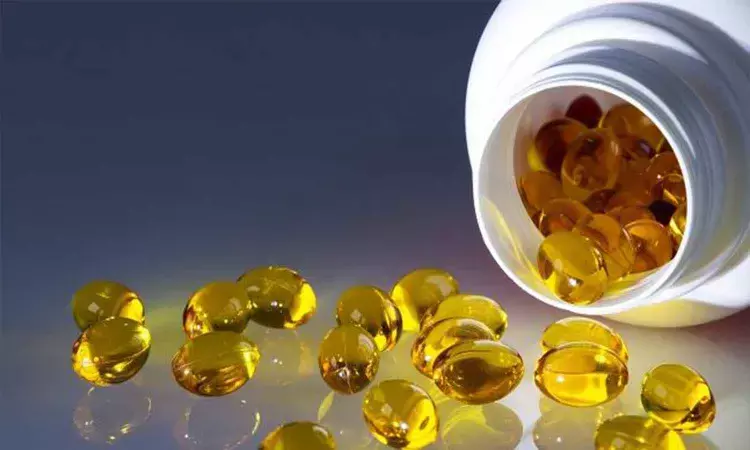- Home
- Medical news & Guidelines
- Anesthesiology
- Cardiology and CTVS
- Critical Care
- Dentistry
- Dermatology
- Diabetes and Endocrinology
- ENT
- Gastroenterology
- Medicine
- Nephrology
- Neurology
- Obstretics-Gynaecology
- Oncology
- Ophthalmology
- Orthopaedics
- Pediatrics-Neonatology
- Psychiatry
- Pulmonology
- Radiology
- Surgery
- Urology
- Laboratory Medicine
- Diet
- Nursing
- Paramedical
- Physiotherapy
- Health news
- Fact Check
- Bone Health Fact Check
- Brain Health Fact Check
- Cancer Related Fact Check
- Child Care Fact Check
- Dental and oral health fact check
- Diabetes and metabolic health fact check
- Diet and Nutrition Fact Check
- Eye and ENT Care Fact Check
- Fitness fact check
- Gut health fact check
- Heart health fact check
- Kidney health fact check
- Medical education fact check
- Men's health fact check
- Respiratory fact check
- Skin and hair care fact check
- Vaccine and Immunization fact check
- Women's health fact check
- AYUSH
- State News
- Andaman and Nicobar Islands
- Andhra Pradesh
- Arunachal Pradesh
- Assam
- Bihar
- Chandigarh
- Chattisgarh
- Dadra and Nagar Haveli
- Daman and Diu
- Delhi
- Goa
- Gujarat
- Haryana
- Himachal Pradesh
- Jammu & Kashmir
- Jharkhand
- Karnataka
- Kerala
- Ladakh
- Lakshadweep
- Madhya Pradesh
- Maharashtra
- Manipur
- Meghalaya
- Mizoram
- Nagaland
- Odisha
- Puducherry
- Punjab
- Rajasthan
- Sikkim
- Tamil Nadu
- Telangana
- Tripura
- Uttar Pradesh
- Uttrakhand
- West Bengal
- Medical Education
- Industry
Omega-3 fatty acids may prevent scarring around the breast implants

AMERICA: Scarring around the breast implants called capsular contracture during reconstructive or cosmetic breast surgery is a common, costly, and painful complication in women receiving them.
The anti-inflammatory effects of omega-3 fatty acids, found in fish oil, might help to avoid abnormal capsule formation suggests an experimental study in the March issue of Plastic and Reconstructive Surgery®, the official medical journal of the American Society of Plastic Surgeons (ASPS).
Mice fed omega-3 fatty acids had reduced capsule formation occurrence around implants - likely due to reduced collagen deposits - according to the research by Giuseppe A.G. Lombardo, M.D., Ph.D., of Cannizzaro Hospital in Catania, Italy and Serena Tamburino, MD, of Chi.Pla Plastic Surgery in Catania, Italy, and colleagues. "We believe that omega-3 supplement is a simple and promising method that could be used to prevent or at least reduce capsular contracture after silicone implant surgery," the researchers write.
When any foreign tissue is implanted, the body naturally develops connective tissue around it. But in capsular contracture, the tissue hardens into a shell that becomes thicker and firmer over time. This results in inflammation, pain, and sometimes dislocation or deformation of the implant. Repeat surgery is sometimes needed to remove the capsule and replace the implant.
"Past research on preventing capsular contracture has focused on reducing bacterial contamination using antibiotics," Dr Tamburino comments. "Fewer studies have focused on controlling the inflammatory process, particularly the arachidonic acid cascade, the main pathway leading to inflammation."
Omega-3 fatty acids - found in oily fish, as well as fish oil supplements - play a major role in the arachidonic acid cascade. The researchers designed a study to see if omega-3 fatty acid supplementation affects capsule formation around implants in animals. Tiny silicone implants were surgically placed under the skin of anaesthetized mice. One group of animals was regularly fed an omega-3 fatty acid supplement, while a control group received water.
After several weeks, capsule formation around the implants was compared between groups. The results showed reduced capsule formation in the group receiving omega-3 supplementation - the implants were thinner and more transparent than in the comparison group.
In addition, capsules from the omega-3-supplemented animals showed reduced expression of transforming growth factor (TGF) beta-2: a cell-activating protein (cytokine) that promotes inflammation. The reduction in TGF beta-2 expression was associated with decreased collagen deposits in the implant capsule.
Could fish oil help to prevent capsular contracture in women undergoing breast surgery using implants? It's too early to say - for one thing, for humans to take a level of omega-3 supplementation similar to that given to rats in the study "would be quite a dose," the researchers write.
"Moreover, we still don't know if this treatment would provide long-term benefit," Dr. Tamburino and coauthors add. "Further clinical studies are warranted to examine their therapeutic applicability and additional studies should be conducted to support our findings concerning the decrease in capsular contracture occurrence."
For further reference please log on to: http://dx.doi.org/10.1097/PRS.0000000000006553
Medical Dialogues Bureau consists of a team of passionate medical/scientific writers, led by doctors and healthcare researchers. Our team efforts to bring you updated and timely news about the important happenings of the medical and healthcare sector. Our editorial team can be reached at editorial@medicaldialogues.in.
Dr Kamal Kant Kohli-MBBS, DTCD- a chest specialist with more than 30 years of practice and a flair for writing clinical articles, Dr Kamal Kant Kohli joined Medical Dialogues as a Chief Editor of Medical News. Besides writing articles, as an editor, he proofreads and verifies all the medical content published on Medical Dialogues including those coming from journals, studies,medical conferences,guidelines etc. Email: drkohli@medicaldialogues.in. Contact no. 011-43720751


